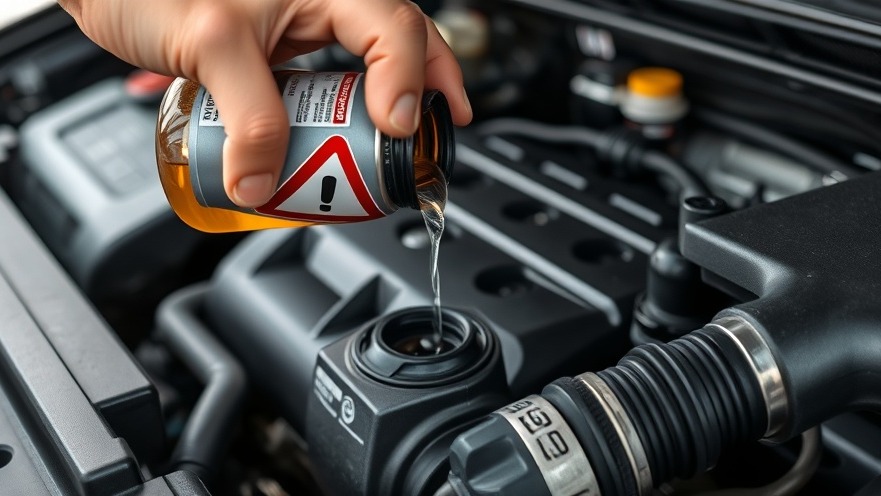
Engine Additives: The Game Changer for Auto Owners
Did you know that engine additives can significantly enhance your vehicle's performance? According to recent insights, these additives can boost fuel economy by an impressive 20% and even prolong your engine's life by as much as 100,000 miles. With such compelling benefits, understanding which engine additives work and which don’t is essential for every car owner.
In 13 Engine Additives That Work (And 5 That’ll Kill Your Car), the discussion dives into effective engine additives, exploring key insights that sparked deeper analysis on our end.
The Power of Effective Engine Additives
In a video titled 13 Engine Additives That Work (And 5 That’ll Kill Your Car), the discussion highlights 13 proven engine additives that offer tangible benefits to auto owners. One standout is Techron Concentrate Plus, a fuel system cleaner from Chevron that effectively removes carbon deposits from engines. Recommended by GM and BMW, this additive improves fuel efficiency and engine performance.
Another reliable product is ATS Chemical 505 CRF, known for its ability to clean various carbon buildups in fuel systems. Users have reported enhanced throttle response and better oil consumption, making it a valuable option for high-mileage vehicles. The Lucas Heavyduty Oil Stabilizer is another worthy mention, specifically designed for older engines. Its unique ability to fill gaps in loose bearings helps prolong the life of aging engines significantly.
How to Choose the Right Additive
When considering engine additives, it's vital to choose one that matches your vehicle's needs. For older cars, products like Lucas Heavyduty Oil Stabilizer and Liqui Moly Mos2 Anti-Friction Engine Treatment offer solid support by reducing friction and wear. Alternatively, newer models may benefit from items like Gumout Fuel Injector Cleaner, which is safe for both old and modern engines.
Understanding the Risks: Additives to Avoid
While many additives can enhance vehicle performance, some can do irreversible damage. The video highlights five notorious additives to steer clear of—such as off-the-shelf octane boosters that promise unrealistic gains. These boosters can lead to engine issues rather than improvements.
It's essential to take caution with oil additives that utilize Teflon. While they sound appealing as a friction reducer, they can ultimately clog up critical engine parts and lead to significant repair bills. Similarly, any product that claims to rebuild engine components with soft metals should be avoided at all costs.
Practical Insights for Car Owners
For auto owners, knowing which additives work and which do not can save time and money on potentially costly repairs. Always read the instructions before using any engine additive, as improper application can lead to negated benefits or further damage. Start by assessing what issues your car is facing and then choose an additive that addresses those specific challenges.
Moreover, using fuel additives regularly can prevent buildup and deterioration, ensuring smoother rides and increased efficiency. Users have noted substantial benefits, including higher MPG rates and quieter engine noises—perfect for those who rely on their vehicles for daily commuting.
Conclusion: Enhance Your Car's Lifespan
In conclusion, knowing which engine additives can improve performance and extend engine life is crucial for all car owners. The right choices can lead to substantial savings and better performance, while the wrong choices can result in costly repairs. By being informed and proactive, you can keep your vehicle in top condition.
If you're looking for a deeper dive into vehicle maintenance and enhancing the lifespan of your engine, consider exploring more resources on effective engine care strategies.
 Add Row
Add Row  Add
Add 




 Add Row
Add Row  Add
Add 

Write A Comment